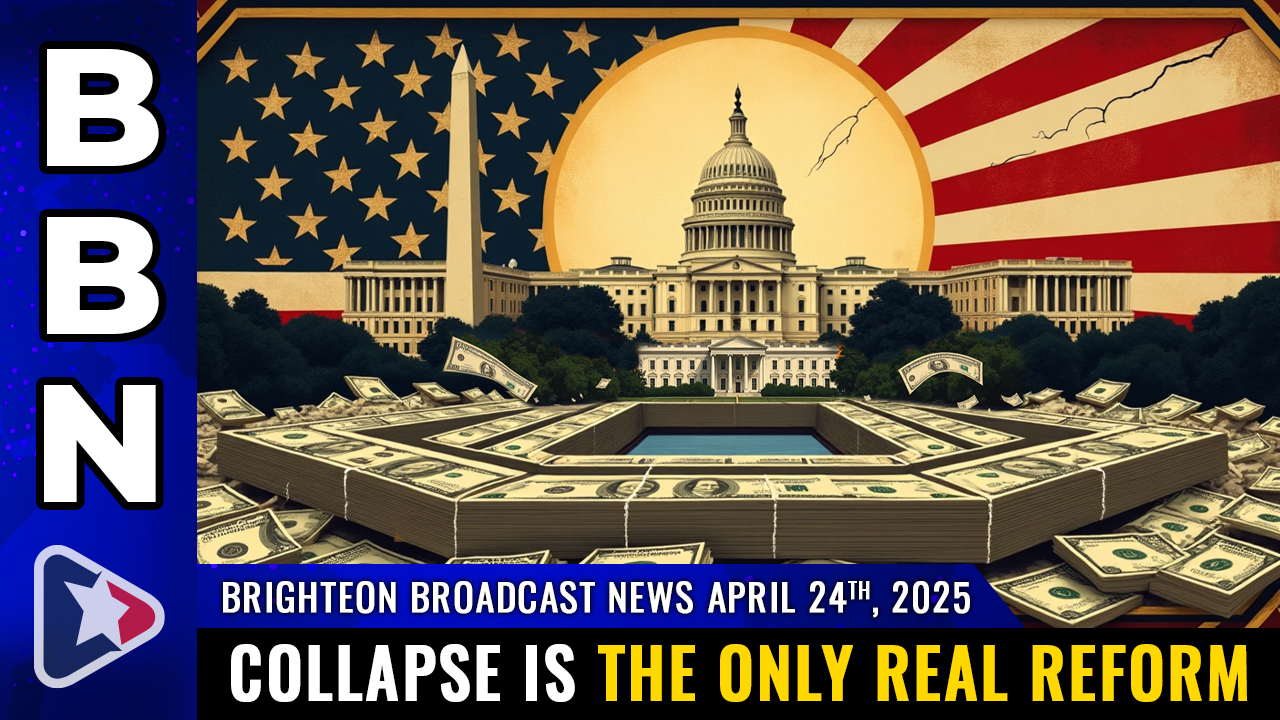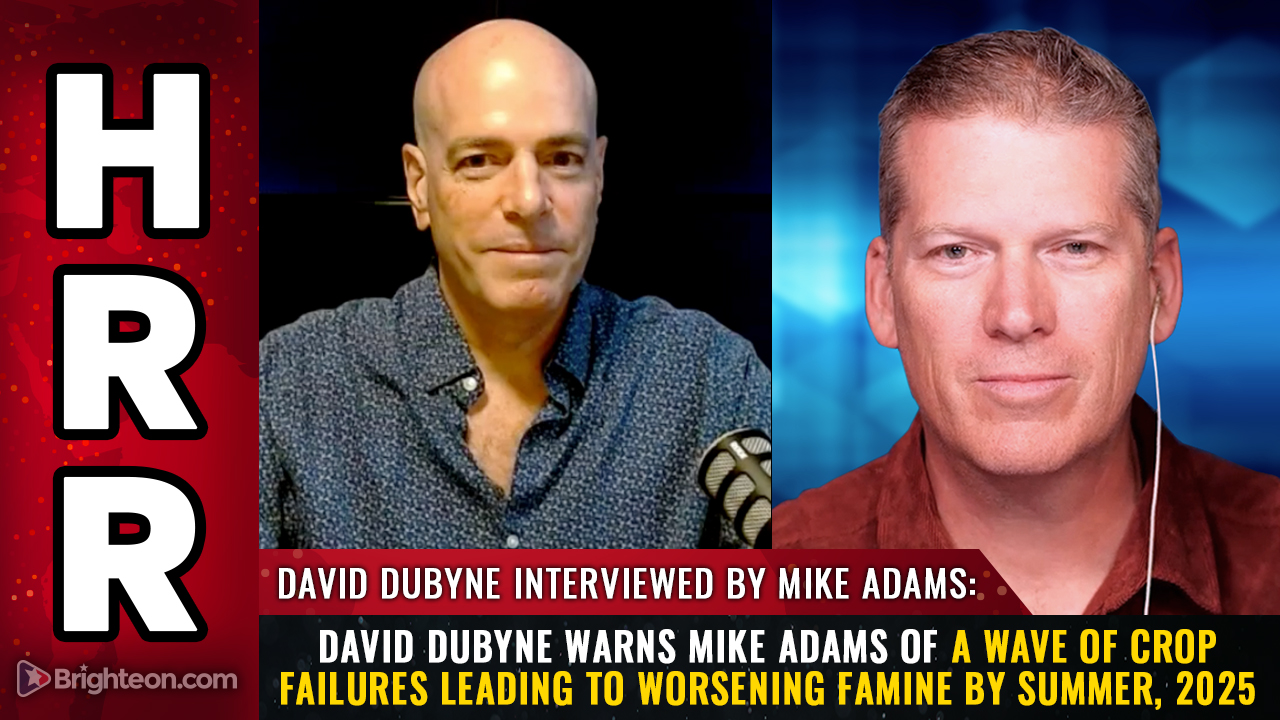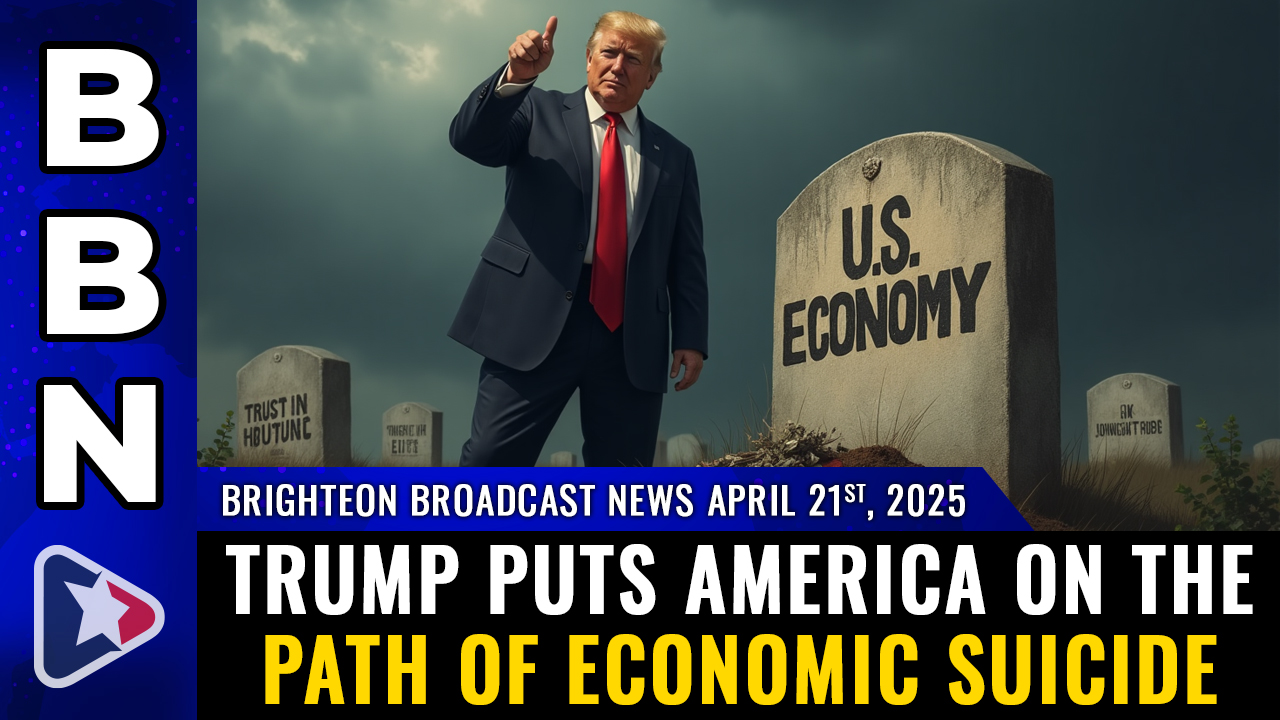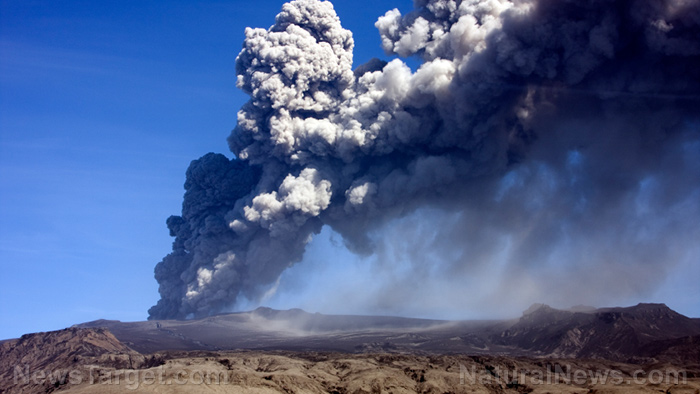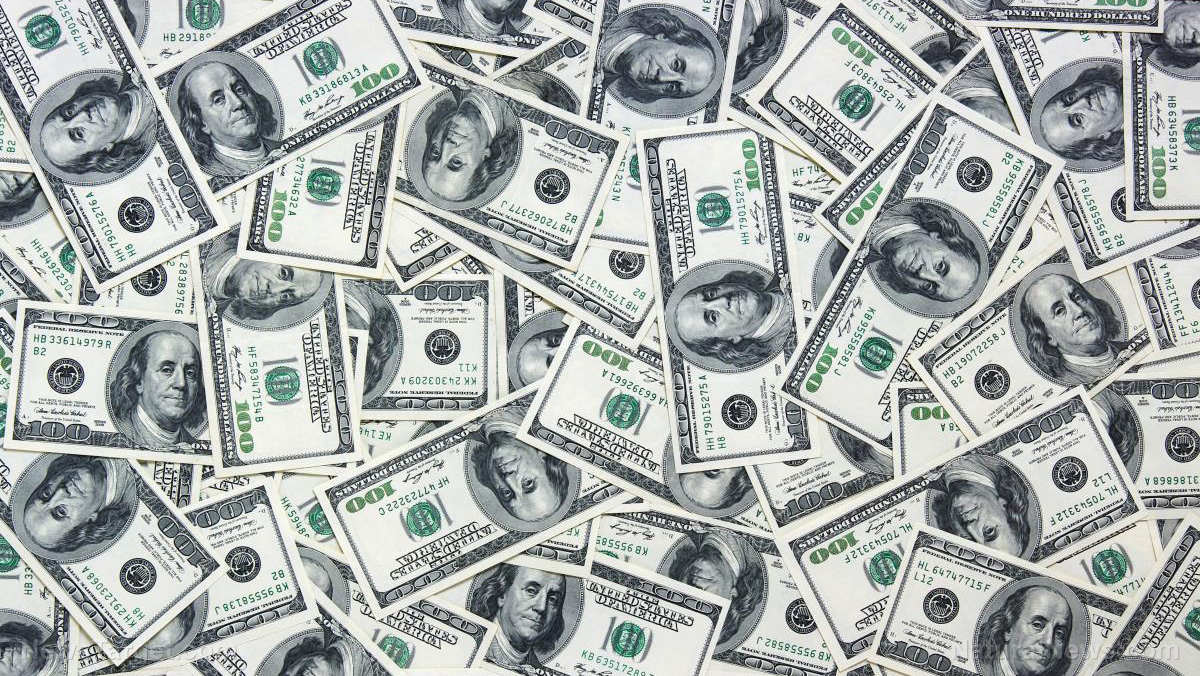Bill Bodri’s “Bankism” unpacks the dollar’s precarious future
04/27/2025 / By Kevin Hughes
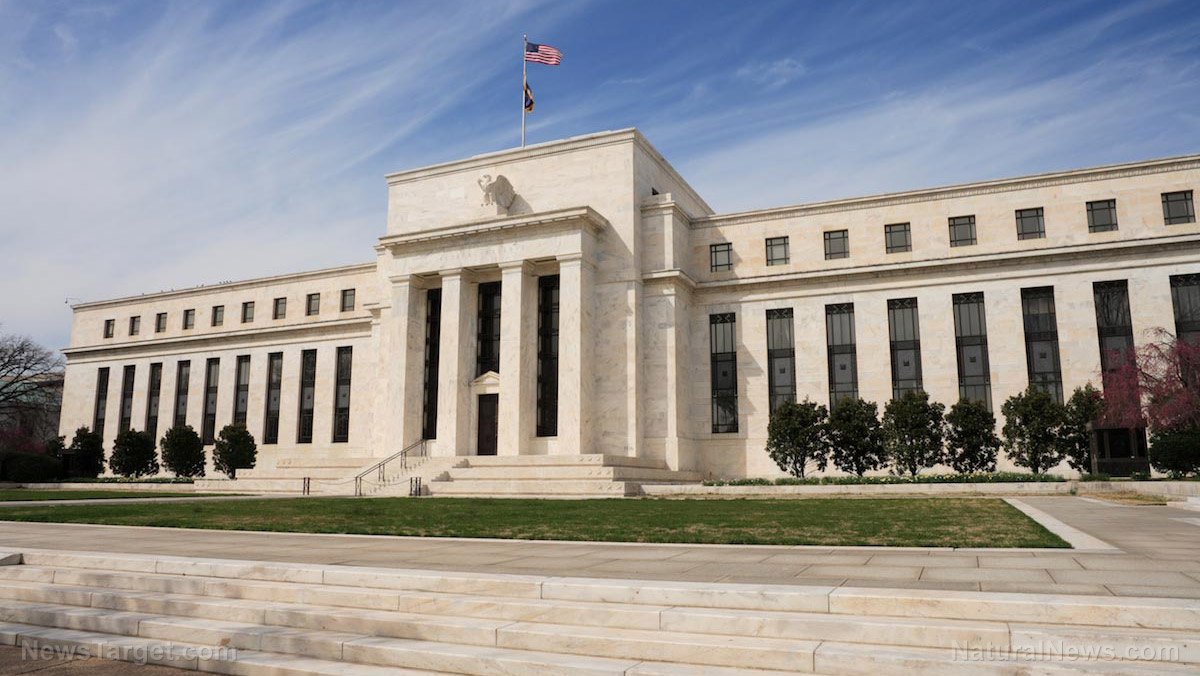
- Bill Bodri defines Bankism as the systemic prioritization of banks’ health and profitability over the well-being of the general public and the broader economy, rooted in the structure and operations of the Federal Reserve, a privately owned corporation primarily controlled by private banks.
- The Federal Reserve, originally intended to act as a lender of last resort, has evolved to disproportionately favor the banking sector, leading to policies that have eroded the manufacturing base, offshored middle-class jobs and inflated the economy with fiat money, making the financial system increasingly fragile and susceptible to collapse.
- The U.S. dollar’s status as the world’s reserve currency is under threat due to the declining Petrodollar system and the Fed’s policies, particularly quantitative easing (QE), which have degraded the dollar’s value and created an unsustainable debt bubble, potentially leading to a dollar collapse with severe economic consequences.
- Bodri proposes several solutions to address the challenges of Bankism, including the reinstatement of the Glass-Steagall Act, breaking up large banks, establishing public state banks and considering a return to the gold standard. He also recommends investing in physical gold and silver as a hedge against the dollar’s decline.
- Bodri envisions a shift away from the U.S. dollar as the dominant global currency, with countries turning to alternative payment systems and currencies like the Chinese renminbi and cryptocurrencies.
In a world where economic stability is increasingly elusive, the term “Bankism” has emerged as a critical lens through which to understand the current financial landscape.
Coined by author Bill Bodri in his book, “Bankism: How the Government’s Bank-First Policies are Destroying the Nation and How to Survive the Aftermath of a Coming Dollar Collapse,” the concept challenges the conventional wisdom surrounding the U.S. financial system and its potential for catastrophic failure. As the dollar’s status as the world’s reserve currency faces unprecedented threats, Bodri’s insights offer a roadmap for navigating the complex and often opaque world of finance.
Bankism, as Bodri defines it, is the systemic prioritization of banks’ health and profitability over the well-being of the general public and the broader economy. This phenomenon, he argues, is deeply rooted in the structure and operations of the Federal Reserve – a privately owned corporation with primary stockholders being private banks.
Established in 1913, the Fed was originally designed to act as a lender of last resort, a safeguard against banking panics. However, over time, its role has evolved into one that disproportionately favors the banking sector.
The Fed’s mandate is to promote maximum employment, stable prices and moderate long-term interest rates. In practice, however, Bodri contends that the Fed has consistently prioritized the interests of banks over the economic health of the nation.
This has led to a series of policies that have eroded the manufacturing base, offshored middle-class jobs and inflated the economy with massive amounts of fiat money. The result is a financial system that is increasingly fragile and susceptible to collapse.
One of the most alarming aspects of Bankism, according to Bodri, is its potential to precipitate the collapse of the U.S. dollar. The dollar’s status as the world’s reserve currency has been artificially maintained by the Petrodollar system, which ties the global oil trade to the U.S. dollar.
However, this system is under threat as countries like China and Russia seek to reduce their dependence on the dollar. The Fed’s policies, particularly quantitative easing (QE), have further degraded the dollar’s value and created a massive debt bubble that is unsustainable.
The implications of a dollar collapse are profound. Import prices would soar, leading to widespread shortages and economic chaos. The global financial system, heavily reliant on the dollar, would also face severe disruptions.
The Exchange Stabilization Fund (ESF), a secretive Treasury department operation, plays a crucial role in maintaining the dollar’s value. The ESF engages in foreign currency interventions and has been known to undertake covert operations to protect the dollar’s status. However, Bodri argues that these actions often serve the interests of banks rather than the public, creating a distorted financial landscape where the true value of the dollar is obscured.
Bodri offers several solutions to address the challenges posed by Bankism and the potential collapse of the dollar. These solutions, while ambitious, provide a framework for systemic reform and individual preparedness.
- Reinstate Glass-Steagall: One of the most significant reforms Bodri advocates for is the reinstatement of the Glass-Steagall Act, which separated commercial and investment banking. This act, repealed in 1999, would help reduce systemic risk and prevent banks from engaging in the risky speculative activities that contributed to the 2008 financial crisis.
- Break Up Large Banks: Bodri argues that large banks have become “too big to fail” and pose a systemic risk to the economy. Breaking them up into smaller, more manageable entities would reduce this risk and promote a more competitive banking sector.
- Public State Banks: Bodri suggests the establishment of public state banks, modeled after the Bank of North Dakota. These banks would be owned by the state and could provide low-cost financing for infrastructure projects and other public needs, reducing reliance on private banks and Wall Street.
- Return to the Gold Standard: While controversial, Bodri proposes a return to the gold standard as a way to impose financial discipline and stabilize the currency. He argues that a gold-backed currency would prevent the excessive money printing that has plagued the U.S. economy.
- Invest in Gold and Silver: As a hedge against the collapse of the dollar, Bodri recommends investing in physical gold and silver. These precious metals, he believes, will retain their value even as the dollar declines.
Bodri envisions a future where the U.S. dollar is no longer the dominant global currency. He predicts that countries will increasingly turn to alternative payment systems and currencies, such as the Chinese renminbi and cryptocurrencies.
The rise of the New Silk Road and other infrastructure projects led by China and Russia are seen as part of this broader shift away from the dollar. In this new world order, the U.S. will need to adapt or face economic decline. Bodri suggests that the U.S. should embrace this change and work towards a more balanced and equitable global financial system.
The concept of Bankism offers a compelling critique of the current financial system and its flaws. While the challenges are significant, Bodri’s insights provide a roadmap for navigating the uncertain waters ahead.
Whether it’s through reforming the banking system, investing in precious metals or preparing for a new global financial landscape, the key is to be informed, proactive and ready to adapt. As the dollar’s future remains precarious, understanding the principles of Bankism is more crucial than ever for anyone concerned about the economic well-being of the nation and the world.
Watch this video about Bill Bodri’s book, “Bankism: How the Government’s Bank-First Policies are Destroying the Nation and How to Survive the Aftermath of a Coming Dollar Collapse.”
This video is from the BrightLearn channel on Brighteon.com.
Sources include:
Submit a correction >>
Tagged Under:
Bankism, Bill Bodri, Bubble, China, Collapse, cryptocurrencies, dollar demise, Exchange Stabilization Fund, Federal Reserve, Glass-Steagall Act, gold standard, market crash, New Silk Road, Petrodollar system, Precious Metals, private banks, quantitative easing, reserve currency, risk, Russia, stockholders, the Fed, Us Dollar
This article may contain statements that reflect the opinion of the author
RECENT NEWS & ARTICLES
COPYRIGHT © 2018 PANIC.NEWS
All content posted on this site is protected under Free Speech. Panic.news is not responsible for content written by contributing authors. The information on this site is provided for educational and entertainment purposes only. It is not intended as a substitute for professional advice of any kind. Panic.news assumes no responsibility for the use or misuse of this material. All trademarks, registered trademarks and service marks mentioned on this site are the property of their respective owners.







